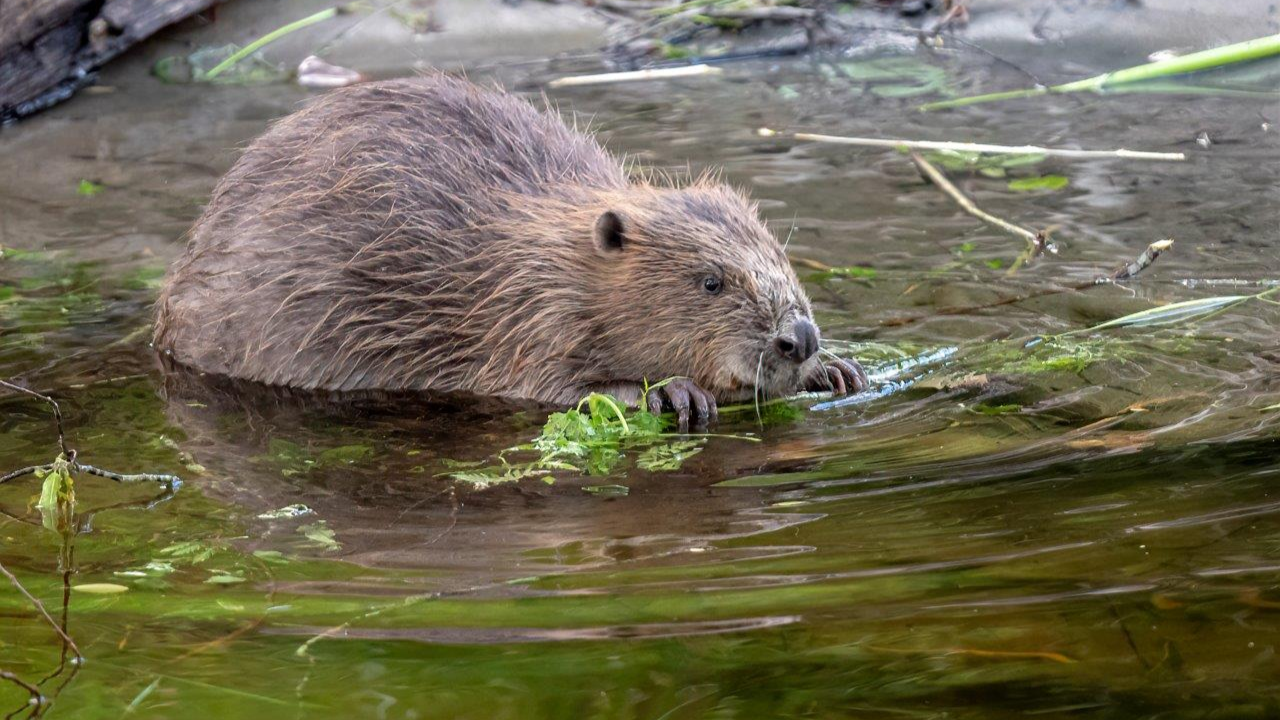Nature’s original master builder – the Eurasian beaver – is set to return to England’s waterways after centuries of absence, following a government decision to allow wild release.
Beavers are prodigious ecosystem engineers and proven climate champions – creating natural flood defences that can reduce flood risks and building wetlands which are thriving havens for wildlife.
Known as a keystone species because the habitats they create benefit myriad other species, they were once abundant in England but became extinct due to overhunting. In recent years, beavers have been returning to England’s waterways through a system of licensed releases into enclosures, and a limited trial of wild release in Devon.
Now in a major boost for conservation, the government has set out a new approach which will allow beavers to live wild in England’s treasured landscapes.
Ministers have set out how government plans to provide the certainty needed for conservationists, landowners and farmers in a new policy statement. It includes the detail of a new licensing system, support for landowners and farmers, and a commitment to produce a plan in consultation with these stakeholders for the long-term management of beavers in England.
The return of beavers will be carefully managed to avoid impacts on farming, food production and infrastructure. New wild release projects will need to have a project plan in place covering a 10-year period to support the introduction of beavers into a landscape before Natural England would consider granting a licence.
Nature Minister Mary Creagh said:
“Beavers are cherished creatures who bring so many benefits for people and our precious natural environment. They create wetlands which are havens for wildlife, reduce flood risk and improve the water quality of our rivers.
“Reintroducing beavers to the wild is a critical milestone for this Government’s plan to protect and restore our natural world.”
Tony Juniper, Chair of Natural England, said:
“Beavers have been missing from our landscapes for about four hundred years and this careful approach for their planned return is a significant landmark for Nature recovery in England.
“Beavers are environmental engineers. The dams, ponds and canals they build not only create amazingly rich habitats for many other species, but can also help reduce flood risk, purify water and catch carbon.
“Under licence from Natural England, the release of wild beavers will be managed to secure the long-term environmental benefits while seeking to minimise and avoid unwanted impacts.”
Alan Lovell, Chair of the Environment Agency said:
“As part of our work to reduce flood risk and restore rivers to good health, the return of wild beavers will improve water quality, boost biodiversity and build resilience to climate change through nature-based solutions.
“Beavers help reduce flooding in nearby towns, remove pollutants from our precious waterways and help to create clean water. Working alongside our partners, the Environment Agency will continue to support the careful management of wild beavers”.



